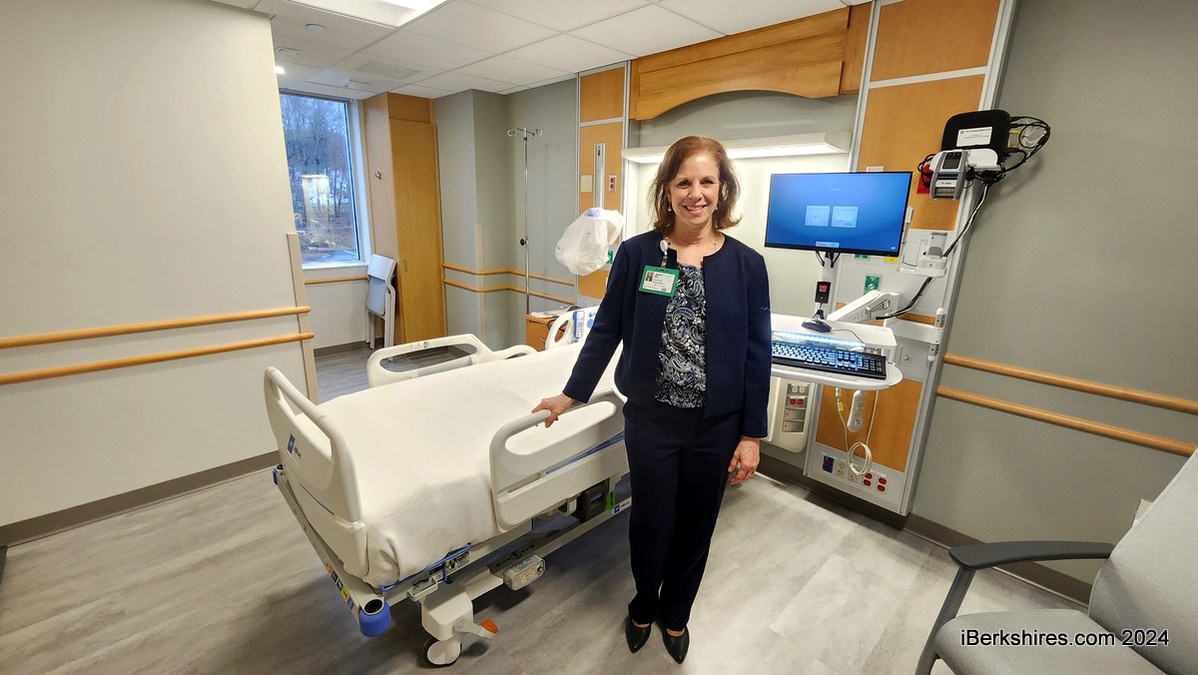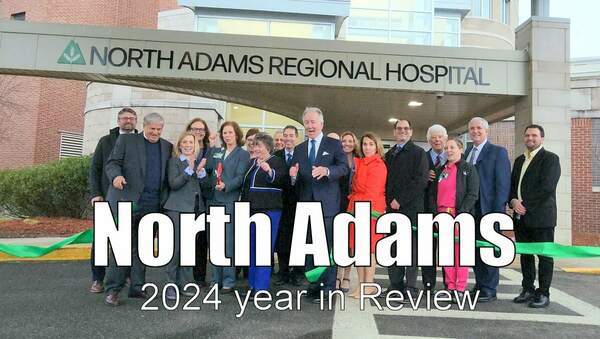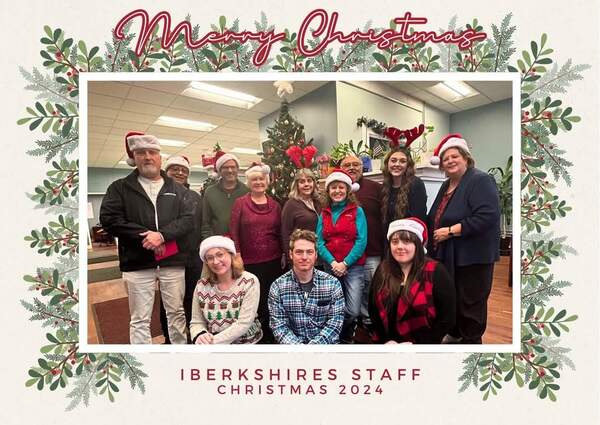
North Adams Owner Appealing 'Dangerous Dog' Ruling

Dog owner Luis Torres, top, speaks during the Public Safety Committee's hearing on his animals that was held on Zoom with committee members Benjamin Lamb and Robert Moulton Jr.
The Public Safety Committee last week ordered Piglet and Pretty Boy euthanized after taking testimony of how they had bitten three people, including a child. A third dog, Crook, was ordered evaluated for possible retraining and rehoming.
But on Monday, owner Luis Torres submitted documents he had filed with Northern Berkshire District Court asking that the ruling be overturned.
Gregg Corbo, an attorney with city solicitor KP Law, recommended the committee vote to have the dogs kenneled at the owner's expense during the appeal process.
"These two dogs were involved in several extremely violent incidents at least one of which caused significant injuries to an individual that she is still suffering from," he said. "These owners have demonstrated a pattern of failing to properly control these dogs."
He said there could be significant risk of additional incidents during the period of appeal, which could last for several months because of the current status of courts because of the COVID-19 pandemic.
The first step, he said, would be to the clerk magistrate of the court, who would look at the evidence and make a decision.
"Proceedings before the clerk magistrate is an up or down decision, it's either affirm or deny," Corbo said. "If they are not satisfied with the findings of the clerk magistrate, then there is an opportunity for a hearing before a judge of the district court and, at that point, the judge has more discretion."
Corbo asked Torres for the name of his attorney but Torres declined to provide it.
The committee also postponed Crook's fate until members could review a letter from a Connecticut trainer saying he could take him. Torres had been ordered to have the dog evaluated for possible rehoming before making a decision whether to declare Crook as dangerous.
Animal Control Officer Carrie Loholdt confirmed she had received the letter given to the Police Department from a trainer who had gone to the house and confirmed he would be able to take Crook. She did, however, have some questions as to whether there was liability insurance required by the city and with the trainer, noting he had not signed the letter and it wasn't clear what rescue he was associated with.
Corbo noted that the committee couldn't force the owners to give up the dog but rather it was a compromise to remove Crook from the city and he had written up a form agreement.
"If the owners are in agreement with this arrangement, there would be a three-party agreement between the owners, the city and the party receiving the dog," he said. "That party would then become responsible for the dog, on the condition that cannot be brought back to the city of North Adams under any circumstance, and the person taking the dog agrees to assume all liability, with respect to that dog."
Torres, when asked, affirmed that he would be willing to give up Crook.
The committee voted to postpone the matter to its next meeting to give members time to read the letter and draft agreement and for Loholdt to make some queries.
During this time, Crook is still ordered to be kept on the property and not be allowed around any children who do not already live there. He must be muzzled if outdoors and muzzled and leashed if taken off the property to a veterinarian or evaluation.
They were still left with the fact that none of the dogs on the property were properly licensed and some had not been vaccinated for rabies.
Corbo said the committee had three options: file a criminal complaint and go through the court process; take the noncriminal disposition through police enforcement to issue a maximum of $300 per day per dog in fines; or ask the court to enforce the licensing requirement within a certain number of days or surrender the dogs to the city.
There are five dogs total, three of which have had their shots and two that still require them. None of the dogs are licensed.
Torres said he had not been able to set up appointments for vaccinations because of the pandemic. He said he had called several different places and had been told he could be put on a waiting list.
"If somebody to help us get them in so they can get their shots we have no problem with doing it," he said. "But it's the fact that we can't get them in."
He claimed he didn't know that dogs had to be licensed and vaccinated.
"The only reason I didn't do it before is I never knew about it. I really honestly never knew about the licenses, I never really never did," he said. "I never had a license on the dog ever, I just never knew about."
Dog licensing has been required for more than a century.
Loholdt said dogs have to be licensed by May 1 and Corbo noted that this was after the governor's emergency order regarding the pandemic. There had been a stay on many statutory deadlines after the March order, including Registry of Motor Vehicles licensing and income tax filing.
"I think that they should still be vaccinated because that's a significant public safety issue, but hold off on licensing until after the state of emergency," Corbo said. The committee agreed and voted to postpone but at member Benjamin Lamb's request, added a time period: Torres would have to make a veterinary appointment within 48 hours and provide documentation of vaccination within 24 hours of the appointment.
Neighbor Michelle Richardson wanted to know where the dogs are at the moment. "Am I safe in my yard right now?" she asked.
Torres responded that the dogs are on the property but she was safe.
Corbo later said, in response to questions from the committee members, that could require the owners to provide more concrete detail as to how they are keeping the neighborhood safe and what restraints were being used. The owners had left at that point.
"I have serious doubts of compliance right now," Lamb said. "I'm not comfortable with voting on this in a positive light in that vein. I want either a written document or I want a sworn statement."
Chairman Jason LaForest also indicated he was not comfortable with the current situation and asked Corbo to address the need for documentation in his motion.
"I am not comfortable with the fact that we're using a COVID loophole for refusal to vaccinate animals that are several years old," he said. "I'm not comfortable that the animals are still in a heavily populated neighborhood ... too many people have been hurt already and ... At this point, I have no further patience for this process."
He asked Corbo to act swiftly and judiciously in petitioning the court to intercede "in every aspect of this matter."
The committee will meet Monday, July 20, at 4 p.m. to continue the hearing on Crook.
Tags: appeals, dangerous dog, public safety committee,
















